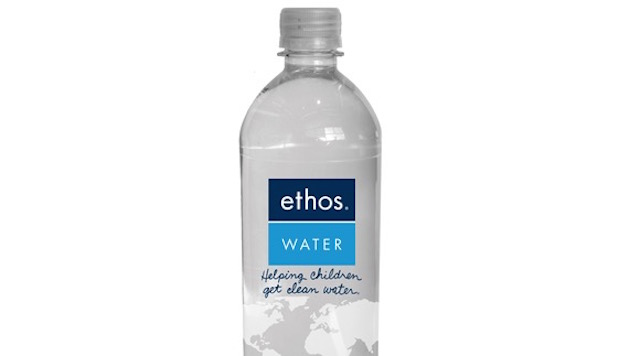When you buy a bottle of water at Starbucks, five cents goes towards “improving the lives of people who lack vital resources,” according to the in-house brand named Ethos Water. That may be true, but there’s a catch: The water’s bottled in a part of California where people’s wells are running dry.
The bottled water industry in California has recently come under vicious criticism, and rightly so. Bottled water isn’t sucking up as much water as you might think, but as the drought has forced many industries to scramble for alternate resources — or go without completely — many see the bottling and selling of the state’s water as unethical. But the problems around Ethos Water (which was bought by Starbucks in 2005) are even more complicated, according to an investigation by Mother Jones:
The bottling plant that Starbucks uses for its Ethos customers in the western United States is located in Merced, California, which is currently ranked in the “exceptional drought” category by the US Drought Monitor. Its residents face steep water cuts in their homes, and surface water for the region’s many farms is drying up.
Here’s a company that is built upon this idea of doing good, and it probably has done quite a bit of good for communities, mostly in Africa. But why exactly Ethos Water continues to take water from one drought-stricken region to “help” another one seems incredibly backwards. (To me, it’s more that bottled water, in general, is bullshit. Even more bullshit is the idea of selling bottled water in a plastic bottle to do good.)
But the real problem here is that this Ethos Water issue highlights the two biggest areas of contention around California’s water policy.
First of all, we know that Starbucks is tapping a “private spring source” in the Sierra Nevadas, according to the article. Due to the way that water rights work in the state, Starbucks likely has riparian rights to that spring which means that they can extract as much water as they’d like for their own purposes. It doesn’t matter if the farms down the highway are suffering or if a municipal water company is running low. They get first dibs and their rights will likely not be revoked. This policy obviously needs to change.
Secondly, due to most of the state’s water data remaining private, we don’t know how much California water that Ethos Water is extracting to support charity projects in other countries. And that’s because the state doesn’t have to release any information about how much water companies like Starbucks — or any other bottled water company — are removing from the ground. This policy needs to change as well.
Change might be coming, but it’s slow. Legislation was passed last summer that would make companies more accountable for their groundwater wells, although it will take a few years to fully go into effect. We’re currently waiting another announcement from the state’s water board which may curtail rights for the most senior water rights holders, including those with riparian rights. And there’s even some better news on the data front: In Sacramento, there were hearings this week for California Senate Bill 573, which would require the establishment of an open data portal for the state — by 2017. California might not be able to wait that long.
